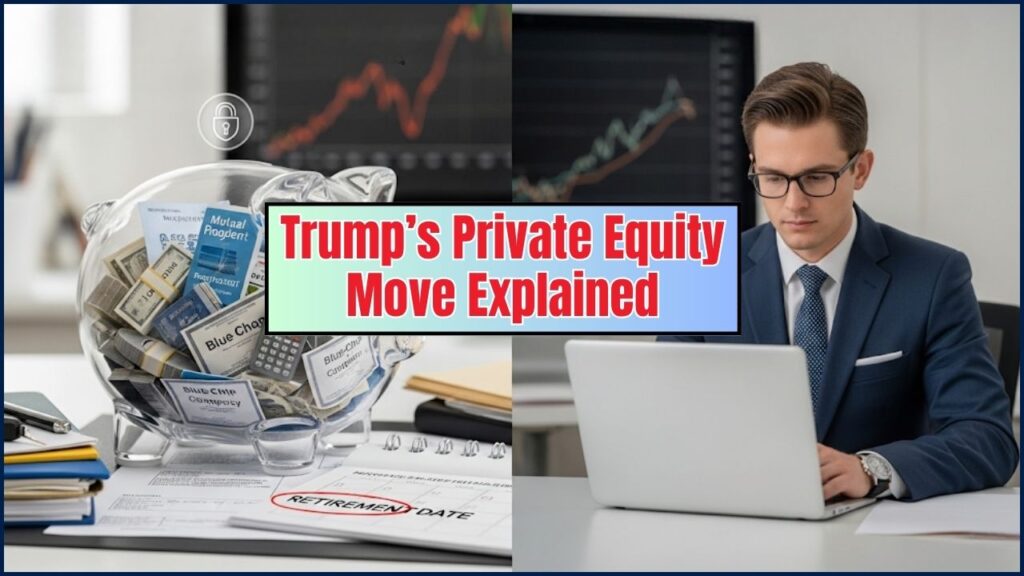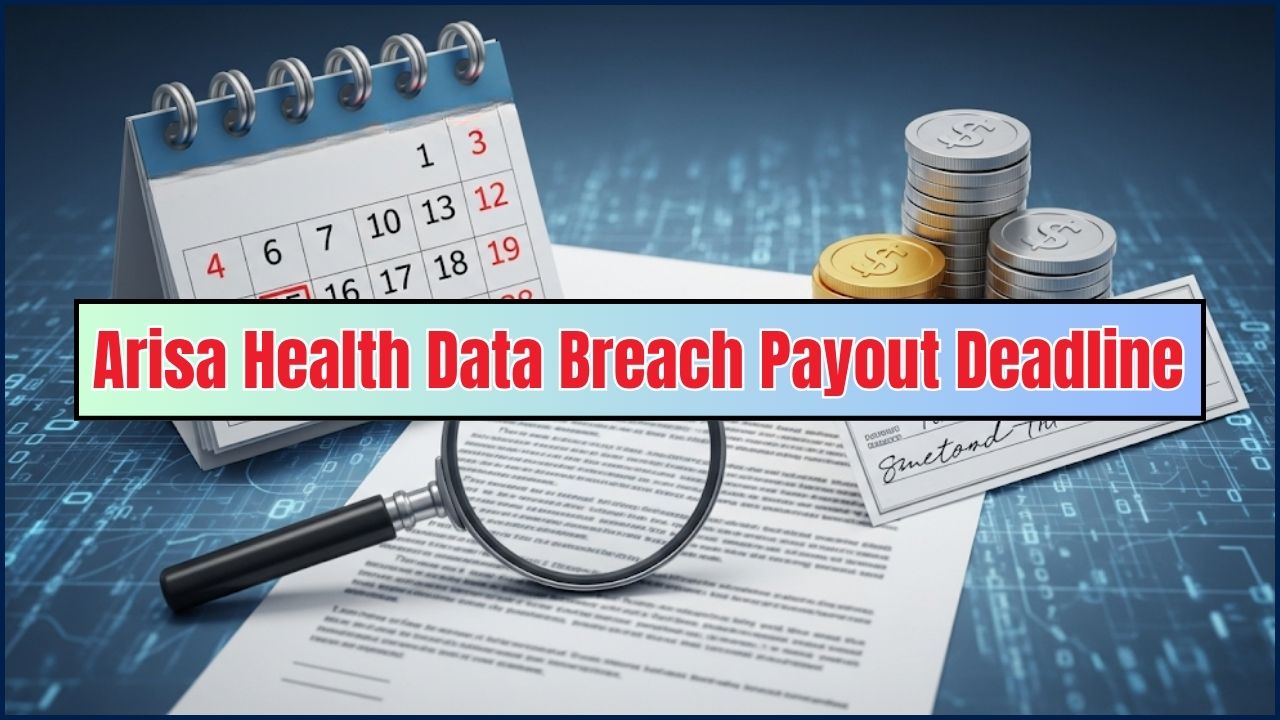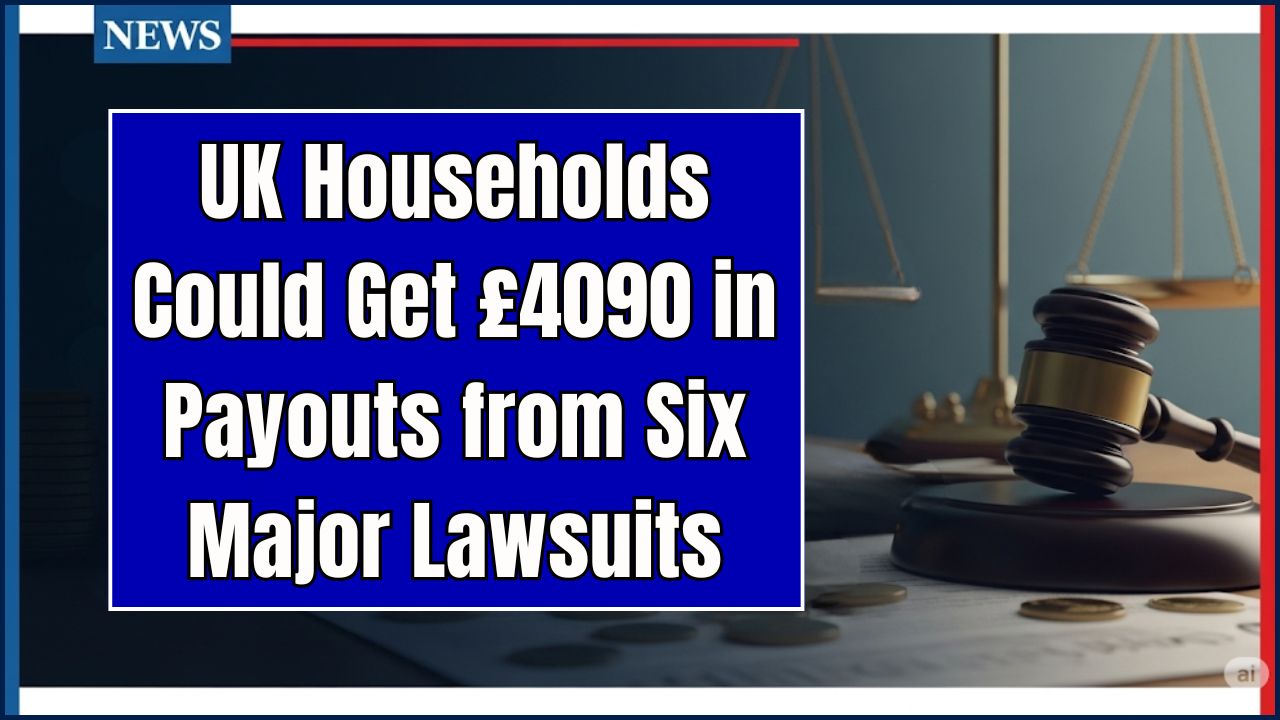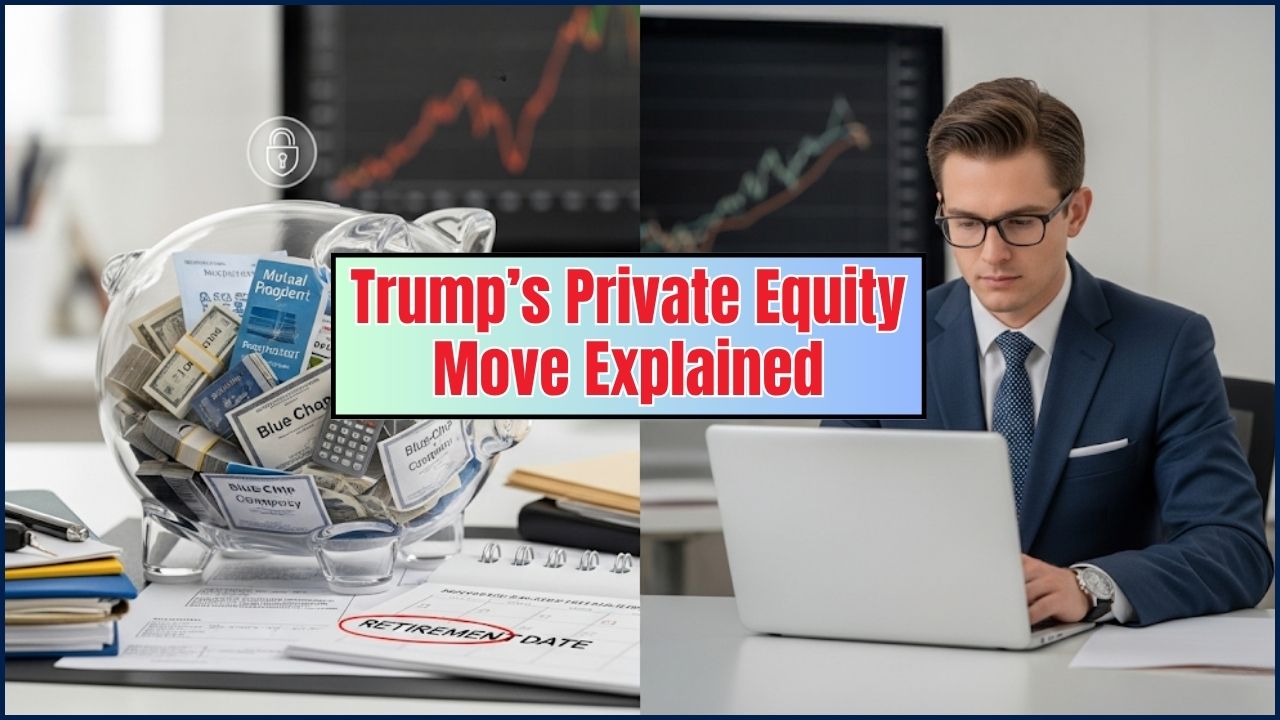The Game-Changer for American Retirement Plans
Millions could see their 401(k)s change forever under a bold new move proposed by former President Donald Trump. This potential shift aims to open the door to private equity and other alternative investments in your 401(k) plan—something most Americans have never had access to before.

If you’re scratching your head wondering what private equity even is, or whether this change will be good or bad for your nest egg, you’re not alone. Don’t worry—we’re breaking this down in plain English, with real-world examples, expert advice, interactive charts, and the latest data. Whether you’re a 9-to-5 worker, a small business owner, or a retirement pro, this article’s got your back.
Millions Could See Their 401(K)s Change Forever
| Feature | Details |
|---|---|
| What’s Happening | Trump’s proposed executive order could allow 401(k) plans to include private equity, crypto, real estate, and hedge funds |
| Who It Affects | Over 60 million American workers with 401(k)s or similar retirement plans |
| Why It Matters | Greater diversification, potentially higher returns, but also higher risks and less liquidity |
| Estimated ROI Boost | Up to 0.5% annual return increase over 40 years |
| Fiduciary Concerns | Plan sponsors may face more legal risk if not properly managing complex assets |
| Interactive Tools | Use FINRA Fund Analyzer to compare costs of mutual funds and private equity options |
| Official Source | U.S. Department of Labor |
Whether you think this is the greatest opportunity since sliced bread or a financial landmine waiting to explode, one thing is clear: millions of Americans could see their 401(k)s change forever.
Trump’s move to expand retirement investing into the world of private equity, crypto, and alternatives could offer major upside – but only if implemented with transparency, education, and proper regulation.
Keep your eyes on your 401(k), ask questions, and don’t be afraid to get help from a pro. This change could either turbocharge your future – or tangle it in red tape and regret.
What Is Private Equity and Why Should You Care?
Private equity means investing in companies that aren’t traded on the stock market. Think startups, mid-sized businesses, or real estate development deals. These investments are often handled by firms like Blackstone, KKR, or Carlyle Group.
Until now, private equity has mostly been reserved for wealthy folks and institutional investors—think Ivy League endowments or pension funds. But Trump’s new proposal could bring these options to the everyday American through their 401(k) retirement account.
Real-World Example
Imagine your retirement account could invest in the next Uber or Airbnb before they go public. Sounds cool, right? But remember: these investments can also flop, and your money might be locked up for years.
What Trump’s Executive Order Actually Proposes
This executive order would push the Department of Labor (DOL) and Securities and Exchange Commission (SEC) to issue updated guidance that:
- Encourages 401(k) plans to include private equity and alternative assets
- Provides “safe harbor” protections for employers who offer these options
- Promotes greater investment flexibility to match how elite institutions grow wealth
According to Barron’s, the proposal could reshape retirement investing for decades.
How Is This Different from the Past?
Traditionally, 401(k)s only allowed investments in mutual funds, ETFs, and company stock. This move could bring private market access to the middle class, changing the very DNA of retirement planning.
Pros and Cons of Adding Private Equity to 401(k)s
The Upside – Why People Are Excited
- Diversification: Reduces reliance on stock/bond mix
- Higher Potential Returns: Private equity has outperformed public markets over 10- and 20-year periods
- Innovation Access: Get in on the ground floor of emerging businesses
- Catch-Up Opportunity: Helps younger workers make up for lost retirement savings due to inflation or job shifts
The Downside – Proceed with Caution
- Liquidity Issues: Your money could be tied up for 5-10 years
- Complex Fee Structures: Private equity fees can eat into returns
- Lack of Transparency: It’s harder to understand what you’re actually investing in
- Higher Legal Risk: Fiduciaries need to prove these are “prudent investments” under ERISA law
“We want workers to have access to the same wealth-building tools used by the ultra-rich,” said a Trump campaign advisor, according to The Week.
What This Means for You – A Simple Guide
Step 1: Know Your Plan Type
If you have a 401(k), 403(b), or similar plan, your employer may eventually offer a new “alternative investments” option. These will be optional, not automatic.
Step 2: Understand the New Options
You won’t be buying a private equity fund directly. Instead, you’ll likely be offered a professionally managed target-date fund that includes a small slice (5–20%) of alternative assets.
Step 3: Ask the Right Questions
Before investing, talk to your HR or plan administrator:
- What is the liquidity of the fund?
- What are the fees?
- How is performance measured?
- Are there penalties for early withdrawals?
Step 4: Align with Your Risk Tolerance
If you’re young with decades before retirement, a little more risk might be okay. If you’re close to retiring, you might want to steer clear of illiquid or volatile investments like crypto or venture capital.
Comparison Table
| Feature | Traditional 401(k) Investments | Private Equity in 401(k)s |
| Asset Class | Stocks, bonds, mutual funds, ETFs, target-date funds. | Investments in non-publicly traded companies. |
| Liquidity | Highly liquid. You can buy and sell on any trading day. | Not liquid. Funds are typically locked up for 5-10 years or more. |
| Transparency | High transparency. Public companies must report financials regularly. | Lower transparency. Reporting is less frequent and standardized. |
| Fees | Generally lower, especially with index funds and ETFs. | Higher fees, including management and performance fees. |
| Accessibility | Widely available in most employer-sponsored plans. | Currently very limited, but expected to expand. |
| Risk & Return | Varies, but generally less risky than private equity. Consistent long-term returns. | Higher potential for returns, but also higher risk of significant loss. |
Facts, Stats, and Trends
- Over 60 million Americans participate in 401(k) plans
- Private equity returned 14.2% annually over the past decade vs. 13.6% for the S&P 500
- 70% of plan sponsors are hesitant about offering alternatives due to legal/fiduciary risks
- Over $7.2 trillion is currently held in 401(k) plans nationwide (U.S. Department of Labor, 2024)
Expert Insights
“Adding private equity to retirement accounts can be a smart long-term move, but it’s not without risk. Plan participants need education, transparency, and safeguards,” says Alicia Munnell, Director of the Center for Retirement Research at Boston College.
“We recommend limiting exposure to 10–15% unless you’re an experienced investor or using a target-date fund managed by professionals,” adds Ed Slott, retirement planning expert.
New! Interactive Tools & Resources
Compare Investment Fees & Risks
Use tools like the FINRA Fund Analyzer to compare mutual funds vs. private equity options.
Plan With a Retirement Calculator
Try DOL’s Retirement Toolkit to plan your ideal retirement date and monthly income.
Webinars & Learning Centers
Check out Morningstar for upcoming webinars on navigating alternative assets.
FAQs
Will I be forced to invest in private equity?
No. These options will be voluntary.
Can I lose all my money in a private equity fund?
You could lose a portion, but managed funds reduce total risk through diversification.
Will this apply to my Roth IRA too?
Not directly, but similar policy changes could follow.
How can I tell if my plan includes these new investments?
Check your plan dashboard or ask HR. It will be clearly labeled as an “alternative” or “private market” fund.
Are there tax implications?
No changes to tax treatment have been proposed. Your 401(k) will still grow tax-deferred until withdrawal.












